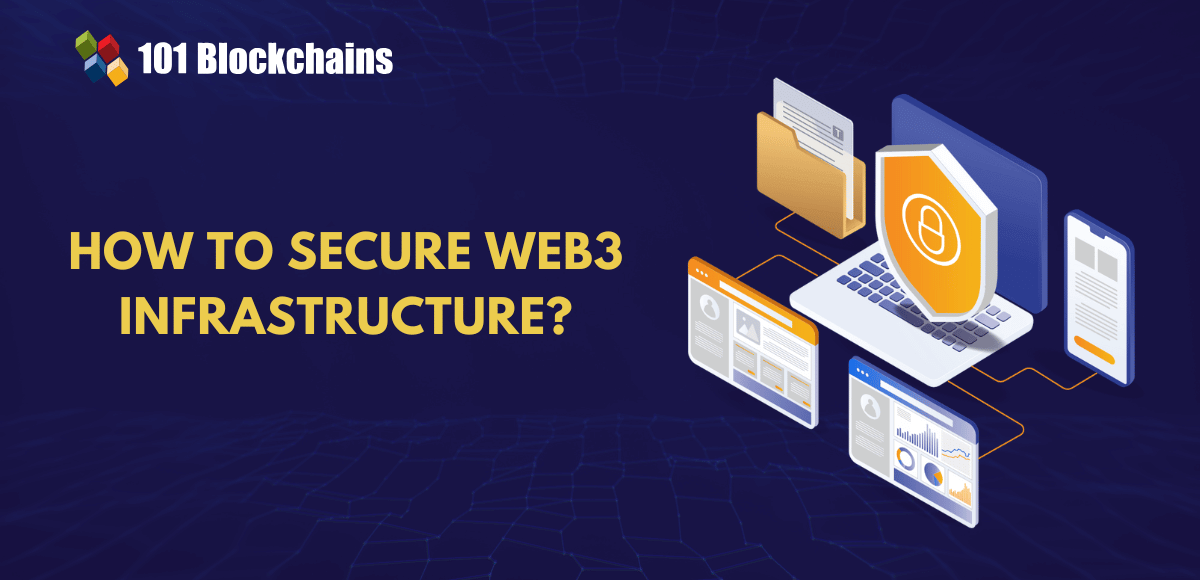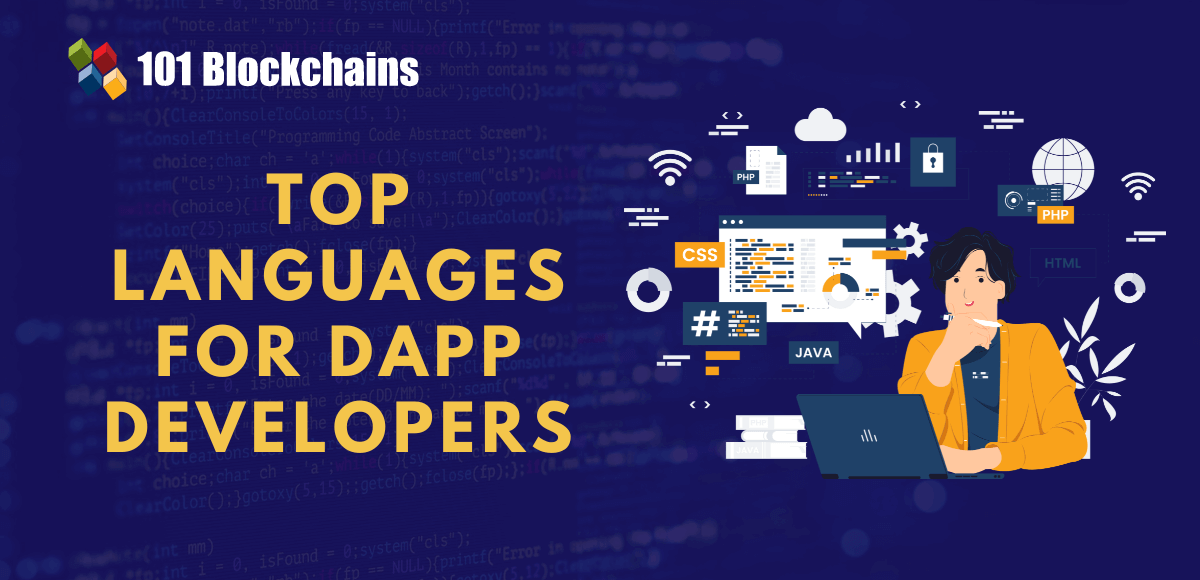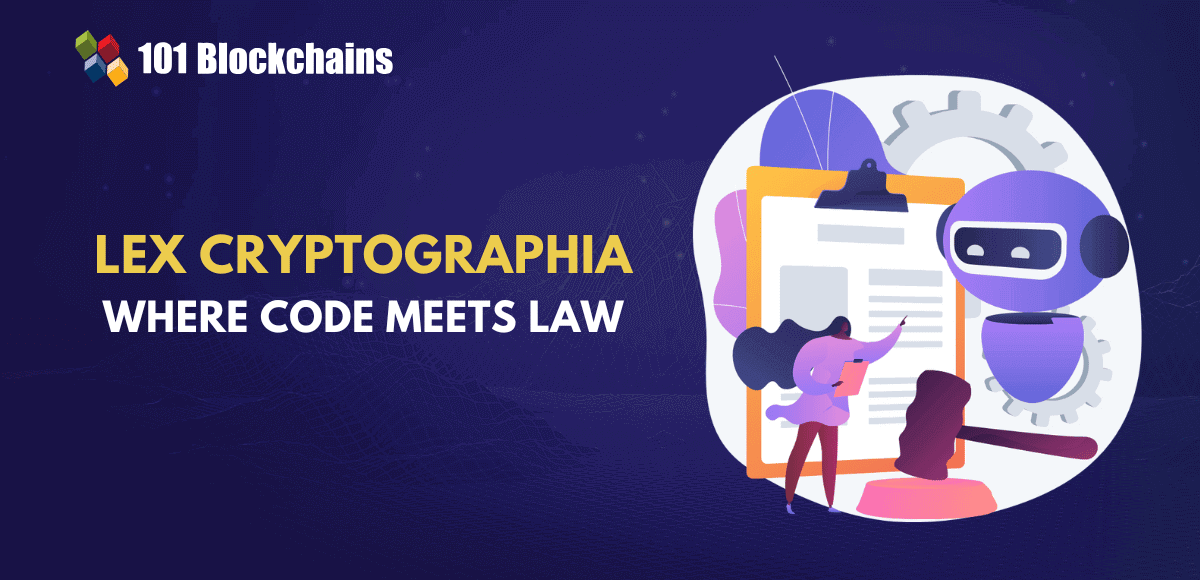Learn how blockchain truly works, master key definitions, and uncover what makes smart contracts so "smart." Dive into the fundamentals, gain valuable insights, and start your blockchain journey today!
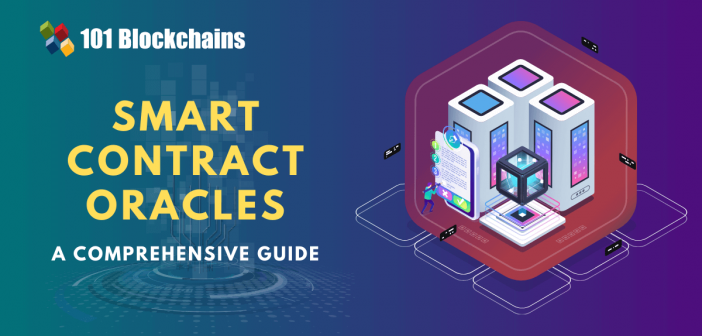
- Guides
Gwyneth Iredale
- on August 04, 2021
Smart Contract Oracles – A Comprehensive Guide
Wondering about what are smart contract oracles? Here we bring a definite guide that will help you understand the basics and advanced concepts of the Smart Contract Oracles. Let’s dive in!
Is blockchain the best example of technological innovation in the 21st century? Yes, it is! At the same time, it is also mired in various controversies on the grounds of its setbacks. The primary functionality of blockchain focuses on enabling individuals and agencies to exchange digital assets without centralized third parties.
On the contrary, blockchain is capable of executing simple transactions only, thereby implying the need for smart contracts. The role of smart contracts in blockchain-based applications has evolved considerably in recent times. For example, the Ethereum Virtual Machine or EVM has ensured more versatility and easier programmability for smart contracts.
However, smart contracts have to face a formidable setback of their inability to access external information from the real world. The following discussion helps you learn how smart contract oracle helps in resolving the most crucial problem of blockchain technology.
Curious to understand the complete smart contract development lifecycle? Enroll in Smart Contracts Development Course Now!
Value of Smart Contracts
Smart contracts operating on different blockchain networks have promising potential for improving efficiencies alongside reducing transactional costs throughout an array of industries. Smart contracts are capable of reducing counterparty risk considerably while ensuring credible levels of transparency. So, why do you need an oracle blockchain in smart contracts?
Despite their plausible advantages, smart contracts also face a notable glitch in their capacity. Recently, the demand for external information in blockchain networks and smart contracts has resulted in debates regarding oracles. Oracles work as data feeds from external sources offering vital information which blockchains could need for executing smart contracts in specific cases.
Diving Deeper into Smart Contracts
If you want to find out the reasons for which you need an oracle smart contract, then you need to dive deeper into an understanding of smart contracts. They are autonomously operating computer programs that could execute automatically upon fulfillment of certain conditions. In the case of smart contracts, you could share anything of value among strangers with better transparency and freedom from conflicts.
It is also possible to imagine smart contracts are vending machines, albeit powered by blockchain. Just like a vending machine can be configured to dispense items according to the dollars put in it, smart contracts depend on Ether in Ethereum-based smart contracts for execution of code in accordance with pre-defined rules.
Smart contracts are actually pieces of code that can be executed without the need for any ‘smart’ implications and largely without legal value. However, the conventional perceptions of smart contracts have been changing considerably in recent times. The recent smart contract developments have shown prolific emphasis on determinism and immutability. Smart contracts code becomes immutable after deployment.
So, you can delete the smart contract although the transaction history remains on the blockchain on which it was operating. In addition, it is also important to note that smart contracts feature self-ownership despite being created by an agent. Any private keys do not control smart contracts, and they could not have the flexibility of self-execution. Smart contracts have the capabilities for activating other smart contracts, albeit with dependence on an externally-owned account for initial inputs.
Excited to learn the basic and advanced concepts of ethereum technology? Enroll Now in The Complete Ethereum Technology Course
Want to know more about the smart contract and how it works? Check out this detailed graphic –
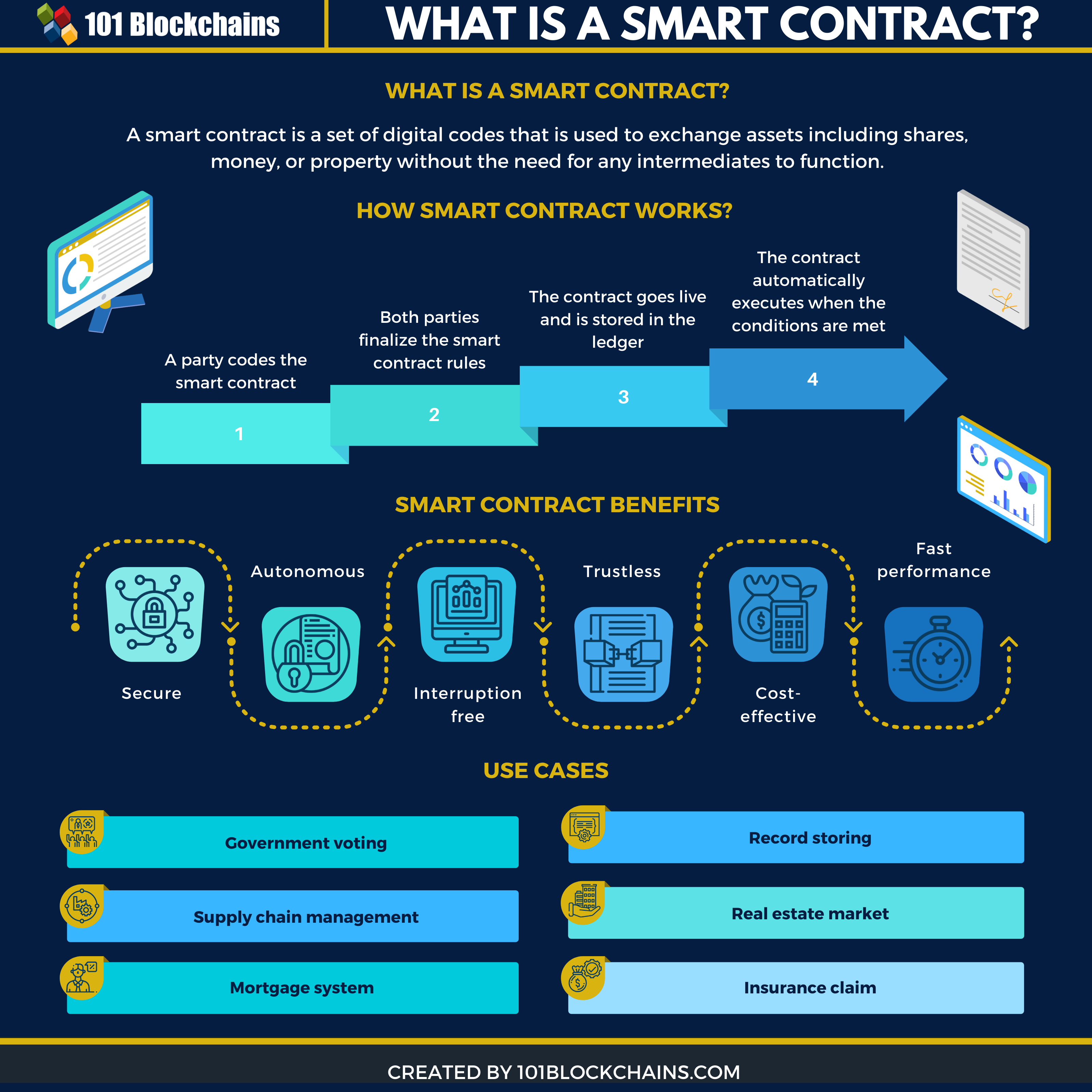
Please include attribution to 101blockchains.com with this graphic. <a href='https://101blockchains.com/blockchain-infographics/'> <img src='https://101blockchains.com/wp-content/uploads/2020/08/what-is-a-smart-contract-1.png' alt='what is a smart contract='0' /> </a>
Example of Smart Contract
Before we move towards a more comprehensive outline of smart contract oracle, it is important to review an example. Let us take the most popular Ethereum smart contracts as an example for understanding the reasons for emphasizing oracles. Ethereum smart contracts are the most notable traits in the Ethereum blockchain network.
The popularity of applications based on smart contracts powered by the Ethereum blockchain has increased profoundly in recent times. However, Ethereum smart contracts operate in a sandboxed environment, thereby imposing restrictions on accessing data external to the Ethereum blockchain.
Ethereum smart contracts also present a formidable setback in their inabilities to access the hardware layers or make HTTP calls. So, they just serve the role of code which has to be executed only upon sending a transaction. This is the reason for which smart contracts need data access and connection to the outside world. Oracles help in offering data access to smart contracts beyond the world of Ethereum blockchain.
Want to know the real-world examples of smart contracts and understand how you can use it for your business? Check the presentation on Examples of Smart Contracts!
What are Oracles?
The definition of an oracle smart contract could help in identifying its purpose in smart contracts. As a matter of fact, the concept of oracles, including decentralized oracles, has been making the rounds for years. However, the recently increasing attention on smart contracts oracles has been primarily driven by concerns about their implementation and possibility of trusting them.
An oracle blockchain basically implies that it is connected to the external world. Oracles help in retrieving and verification of external data for blockchain and smart contracts by leveraging methods such as market data feeds and web APIs. Smart contracts could require different types of data depending on the use case.
For example, smart contracts could need information on weather or price feeds. Applications based on smart contracts could utilize oracles for querying the data source to request particular information. Subsequently, the oracles could just establish a connection between the data source and the interface between blockchain and the data feed.
Data feeds from real-world markets, and the web APIs do not feature deterministic components like smart contracts and blockchain networks. So, a smart contract oracle helps in translating non-deterministic, external information into formats that are comprehensible for a blockchain. Subsequently, it helps the blockchain use external information for executing particular conditions in the smart contract. In addition, smart contract oracles are also useful in use cases for multi-signature transactions for reaching consensus on the transactions for signing.
Example of Smart Contract Oracles
Interestingly, the smart contract oracle example has inspired many platforms such as Augur, which serves as a decentralized prediction market. Augur shows a more complicated version of smart contract oracles by functioning as a data feed which involves the significance of participant behavior as the data source. At the same time, Augur also depends on oracles for reporting accurate results to prediction markets. Interestingly, an incentive structure helps in encouraging honest, accurate reporting.
Let us take a generalized example for understanding the significance of a smart contract oracle. Assume that you are purchasing a house with digital currency and you have developed a simple, smart contract for the same. The smart contract would specify that if first party sends required funds to a second party, then the deed of the house goes to the first party from the second party. When the conditions are fulfilled, the transaction proceeds in an irreversible fashion according to specified instructions.
As a result, you can see how smart contracts remove the need for depending on third parties. However, blockchains and on-chain smart contracts must have an approach for using external, off-chain data. Why? Smart contracts could find real-world applications by accessing external information. In this example, the off-chain data could be proof of successful payment or successful receipt of the deed. So, self-contained blockchain systems have to depend on oracles for improved functionalities.
Build your identity as a certified blockchain expert with 101 Blockchains’ Blockchain Certifications designed to provide enhanced career prospects.
Classification of Smart Contract Oracles
You can classify oracle blockchain on the grounds of source, trust, and direction of information. Interestingly, one particular oracle could easily qualify for different categories. The source of the oracle refers to the origins of the data, i.e., whether it came from hardware or software. The trust aspect in smart contract oracles points out the centralized or decentralized nature of the oracle smart contract. Classification of smart contract oracles also depends on the direction of information, which could be outbound or inbound. Let us take a look at the different types of smart contract oracles to develop a better understanding of oracles.
-
Software Oracles
As the name implies, software oracles are the smart contract oracle example where oracles engage in interactions with online sources. Then, the oracles transmit the information from online sources to the blockchain. The information for software oracles could originate from websites, online databases, or servers, basically referring to any source of data on the web.
Connection to the internet offers a formidable advantage to software oracles as they could provide information to smart contracts alongside ensuring the real-time transmission of information. The examples of the information offered by examples of software smart contract oracle include real-time flight information, exchange rates, and prices of digital assets.
-
Hardware Oracles
Hardware smart contract oracles are important in situations where smart contracts need to interact with the real world. The basic design of hardware oracles enables them to obtain information from the physical world alongside ensuring its availability to smart contracts. The examples of the information offered by hardware oracles refer to information from electronic sensors, information reading devices, and barcode scanners.
The work of hardware oracles focuses on the translation of real-world events into digital values that are comprehensible for smart contracts. A practical smart contract oracle example, in this case, would refer to the use of a sensor for checking the arrival of a truck at the loading bay. If the sensor detects the truck at the loading bay, it could send the information to a smart contract. Subsequently, the smart contract could take relevant decisions according to the specified instructions.
-
Inbound Oracles and Outbound Oracles
Inbound oracles are capable of transmitting information to smart contracts from external sources. Similarly, outbound oracles are involved in sending information to the external world from smart contracts. The example of an inbound smart contract oracle would be one that informs a smart contract about the temperature recorded by a sensor.
On the other hand, an outbound oracle example could be identified in the form of a smart lock. The smart contract would send the information about the deposit of funds to an address by leveraging an outbound oracle. The outbound oracle would send the information to the mechanism for unlocking the smart lock.
-
Contract-based Oracles
Another prominent example of oracle blockchain refers to contract-based oracles. The contract-based oracles are tailored for use by a single, smart contract only. As a result, if an individual wants deployment of various smart contracts, they would need to develop a relevant number of contract-based roles. The requirement of high cost and time for their maintenance is the most prominent setback associated with contract-specific oracles.
Companies that have to extract data from different sources could find impractical concerns in contract-specific oracles. However, it is possible to design oracles for specific smart contracts according to particular use cases. Most important of all, developers have promising levels of flexibility in tailoring the smart contract oracle to their particular requirements.
-
Centralized & Decentralized Oracles
Centralized oracles are under the control of a single entity and serve as the only information provider for smart contracts. It is clearly evident that utilizing a particular source of information can present formidable risks. The efficiency of the contract would depend profoundly on the entity which controls the oracle.
In addition, any malicious intervention by bad agents could impose a direct influence on the smart contract. Subsequently, the most important trouble with the oracle smart contract in centralized form is the single point of failure. As a result, centralized oracles can reduce the resilience of contracts to attacks and vulnerabilities.
On the other hand, decentralized oracles share similar objectives, just like public blockchains with a focus on avoiding counterparty risks. Decentralized oracles could improve the reliability of information offered to smart contracts. How? Decentralized oracles do not depend on a single source of truth, and multiple oracles have to participate in determining data validity and accuracy. Therefore, decentralized oracles also deserve the term ‘consensus oracles’ due to their functions.
Want to become smart contract developer? Checkout our detailed guide on How To Become A Smart Contract Developer?
Final Words
Blockchain technology is still struggling to find mainstream applications due to its inability to access external data. So, a reliable mechanism for offering external data to blockchains and smart contracts with a smart contract oracle could provide promising answers. Blockchain oracles help smart contracts in accessing external, real-world information according to the use cases.
Therefore, oracles could widen the scope of implementing blockchain in many real-world applications. At the same time, the different types of smart contract oracles showcase how it is possible to design them according to your needs. Learn more about blockchain oracles and how they can establish the foundation for the future of blockchain and smart contracts.



